What to stream during Pride Month
In celebration of Pride Month, the College of Liberal Arts asked Dr. Daniel Humphrey, associate professor of film studies and women's and gender studies, for a list of documentaries and TV shows worthy of binging. His list provides both fun and compelling selections to help you safely celebrate the LGBTQ+ community during a global pandemic. Happy streaming, and Happy Pride!

By Dr. Daniel Humphrey, associate professor of film studies and women’s and gender studies
Last year Dr. Daniel Humphrey, associate professor of film studies and women’s and gender studies, provided a list of movies to watch during Pride Month. This year, the College of Liberal Arts asked Humphrey to compile a list of documenters and TV shows worthy of binging throughout Pride 2020. We hope you enjoy the documentaries and shows on this list as much as we enjoyed putting it together for you!
Pride Documentary Filmmaking
Nitrate Kisses (1992)
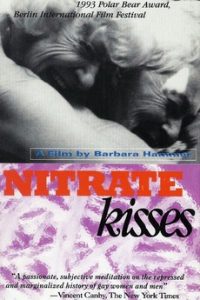
When Barbara Hammer’s name and picture came up during the Oscars’ “in memoriam” segment this year, the average viewer must have wondered who she was, but LGBTQ and feminist cineastes knew she was the great avant-garde and documentary filmmaker of her generation. (The folks at my Oscar party burst into applause when they saw she wasn’t overlooked.) Hammer’s most famous (and fair warning, sexually frank) film compares post-Stonewall LGBTQ culture with the largely erased, oft time fragmentary queer past. Using outtakes from an early homoerotic silent film, Lot in Sodom (1933), in juxtaposition with other footage, old and new, Hammer combines experimental cinema with theoretically sophisticated historiography to encourage the viewer to look deeper and more carefully at the remnants of the past for evidence of queer lives.
The Times of Harvey Milk (1984)
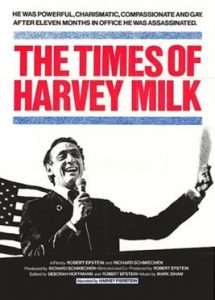
Before the Oscar winning 2008 biopic with Sean Penn about the legendary, openly gay San Francisco supervisor, Harvey Milk, there was an Oscar-winning documentary. Every bit as good as the recreated drama, and in some ways better, Rob Epstein’s groundbreaking film crafts a compelling narrative about a hero who inspired a generation of LGBTQ citizens. It plays like riveting fiction, so many amazing twists and turns, but every bit of it is completely true.
Tongues Untied (1989)
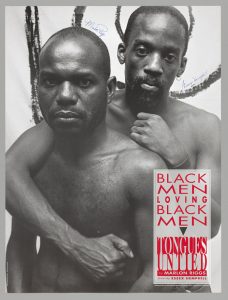
Marlon Riggs’ trenchant and controversial PBS documentary galvanized the discussion about racism within the gay community. A minority within a minority, Black gay men are called upon in the film to stand in solidarity with other Black gay men, rather than curry the acceptance of a white dominated mainstream gay world. The film expresses some palpable anger (justifiably so), but it’s also beautifully poetic and haunting. Performative in nature—it’s as naked an expression of its creator’s racism-ravaged heart as any film you’ll see—it’s not just a legendary film in the world of LGBTQ documentary. It’s a legend in the world of film, period.
United in Anger: A History of Act Up (2012)
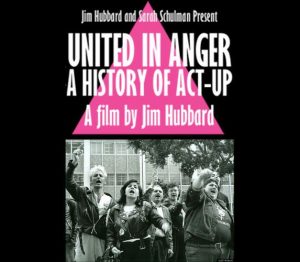
There are a lot of great documentaries about the AIDS pandemic and its effects on the queer communities of the United States (We Were Here, 5B, How to Survive a Plague, Silverlake Life: The View from Here), but the most thrilling to me is surely United in Anger. Footage shot by AIDS activists themselves at protests in the 1980s and 90s, mostly in New York, in the spirit of Soviet filmmaker Dziga Vertov, is augmented by interviews with the activists themselves taken from the ACT UP Oral History Project. In a White House press briefing earlier this year, Anthony Fauci praised the “incredible courage and dignity and strength and activism” of the gay community at this moment in history. With this film, as exciting and dramatic as anything Hollywood has ever made, you can see just what he means.
Pride TV
American Horror Story: Asylum (2012-2013)
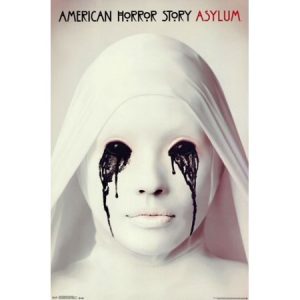
Fans of AHS will be the first to tell you that the show has a very strong queer vibe—sometimes homoerotic, sometimes campy, sometimes both—but it was the Asylum narrative, involving a lesbian (played by the great Sarah Paulson) in the 1960s who is committed to a mental hospital against her will for… well… for being a lesbian, in which the series brushed up against a very real, truly horrifying social issue. This is easily the best season of the landmark show; it’s novelistic in breadth, genuinely scary (while many of the seasons are not) and has an ultimately kick-ass gay woman as its center.
Sex Education (2019-)
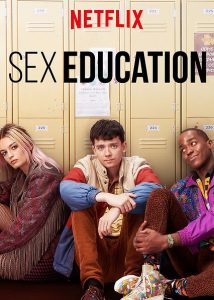
Although the protagonist, the charming Otis as played by Asa Butterfiled, is straight, it seems like virtually everyone else in this Netflix sensation about a very sexually active UK high school lands somewhere on the extended LGBTQIAPK spectrum. From Otis’s best friend Eric, who is all but defining queer style for his generation, to his girlfriend Ola, who may be desiring a girlfriend herself, the show offers viewers a veritable queer utopia, where the homophobia is (relatively) low, and gay pride is elicited in virtually every episode.
She’s Gotta Have It (2017-2019)
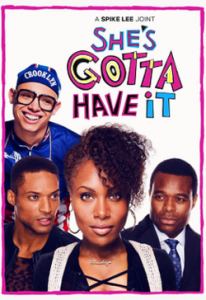
Spike Lee remakes his problematic first film as a nearly perfect television show, and for two gripping seasons, we are privileged to see the world through Brooklyn artist Nola Darling (a brilliant DeWanda Wise), a passionate and strong bisexual artist trying to navigate the art world of a rapidly gentrifying borough while also living her best life as a free sexual being. Lee directed every episode of this two-season show, and his ferocious cinematic talent is always on display in what may be his most purely entertaining and emotionally satisfying work.
Special (2019-)
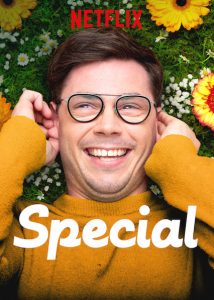
This charming sitcom focuses on Ryan (played by showrunner Ryan O’Connell), a young gay man with cerebral palsy who decides to break free from his mother’s nurturing protection and get a job, an apartment, and maybe even a love life. Provided in 15-minute episodes, it’s the perfect choice for a series to watch in short hits during a busy week. The rapport between Ryan and his mother (a wonderful Jessica Hecht) is particularly well observed, occasionally diving into arresting, realistic drama. Still, the film is mostly a charming comedy, one that fully lives up to its name.
